Everything You Need to Know Before You Go
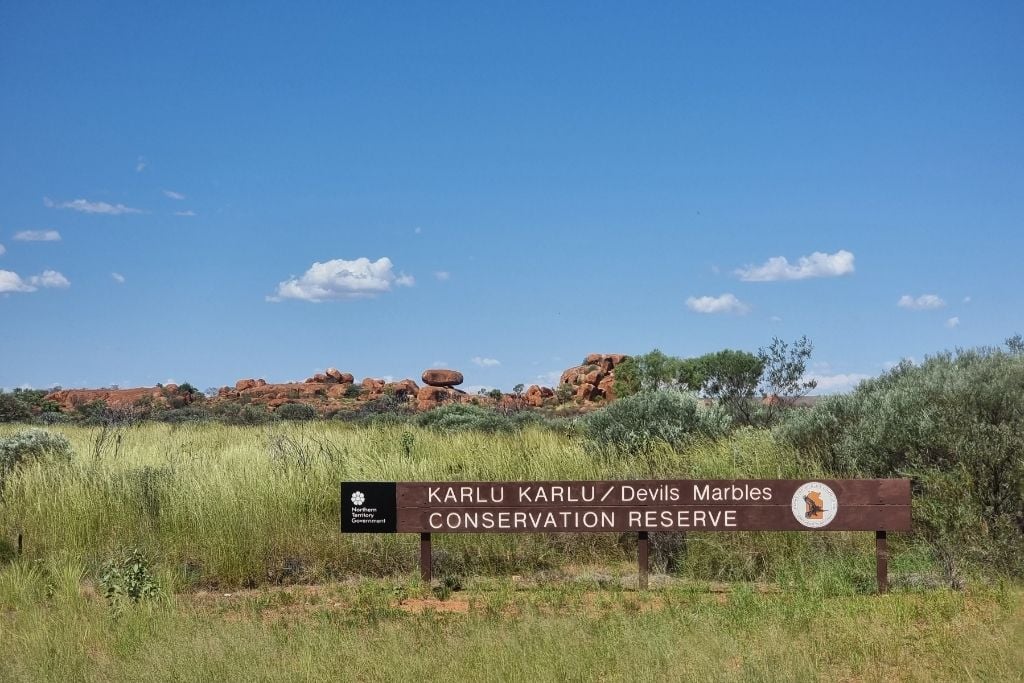
The Devils Marbles (Karlu Karlu) is more than just a geological wonder—it’s an essential stop on any NT road trip, particularly along the famed Explorer’s Way. This road trip cuts through the center of Australia.
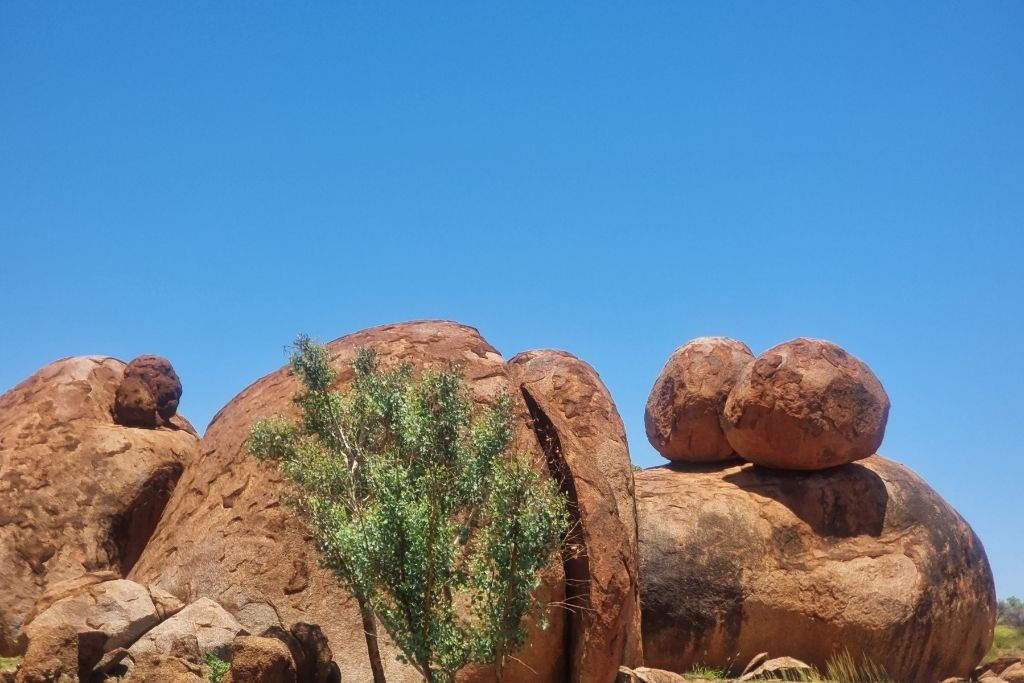
Whether you’re driving from Darwin to Alice Springs, tackling the Barkly Highway, or mapping out your ultimate Outback adventure, this guide will provide everything you need to know to explore responsibly and respectfully.
Come along with me to explore the Devils Marbles
As a seasoned solo traveler and 4WD explorer, I’ve spent years navigating Australia’s most remote landscapes. Currently I am exploring the Northern Territory’s rugged outback. My road trips are fueled by deep respect for the land, its history, and the people who have called it home for thousands of years.
This time I was the passenger as I had the pleasure of exploring the area with a fellow tourist. I must admit I did enjoy relaxing back and watching the scenery go by for a change.
Karlu Karlu (the Devils Marbles) – A Living Cultural Landscape
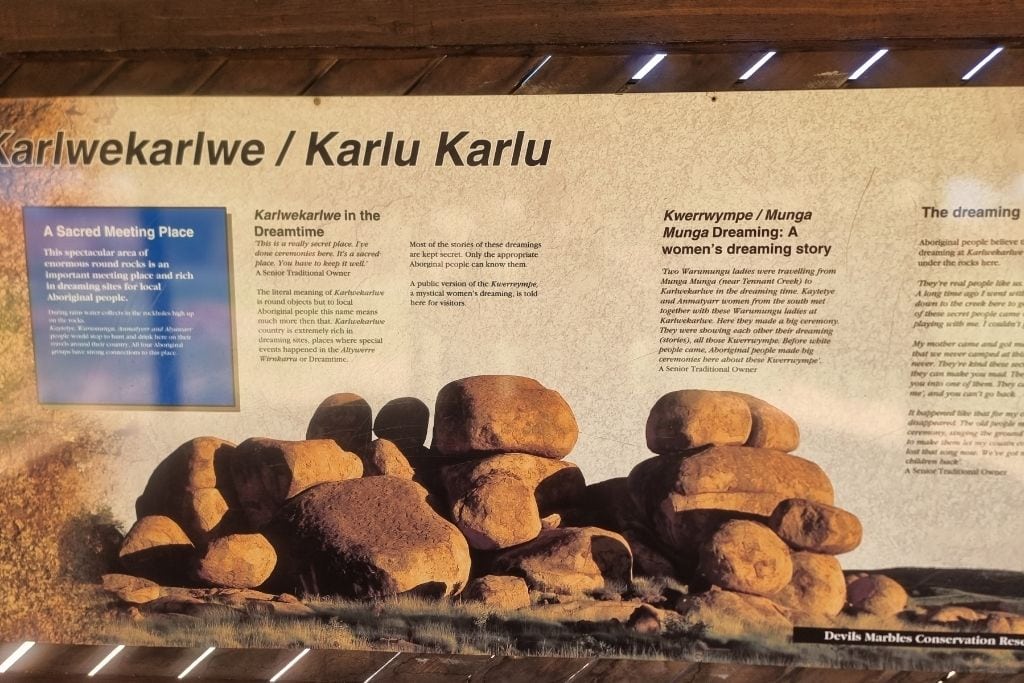
Karlu Karlu holds deep spiritual significance for the Warumungu and Kaytetye peoples, who have cared for this land for millennia. According to Dreamtime stories, these massive boulders are the eggs of the Rainbow Serpent, a powerful ancestral being.
Some of the rock formations are considered sacred, and some cannot be photographed due to cultural reasons. Nearly the entire reserve is a sacred site. Visitors are urged to respect local traditions and follow guidelines posted at the site.
Connection to the Land
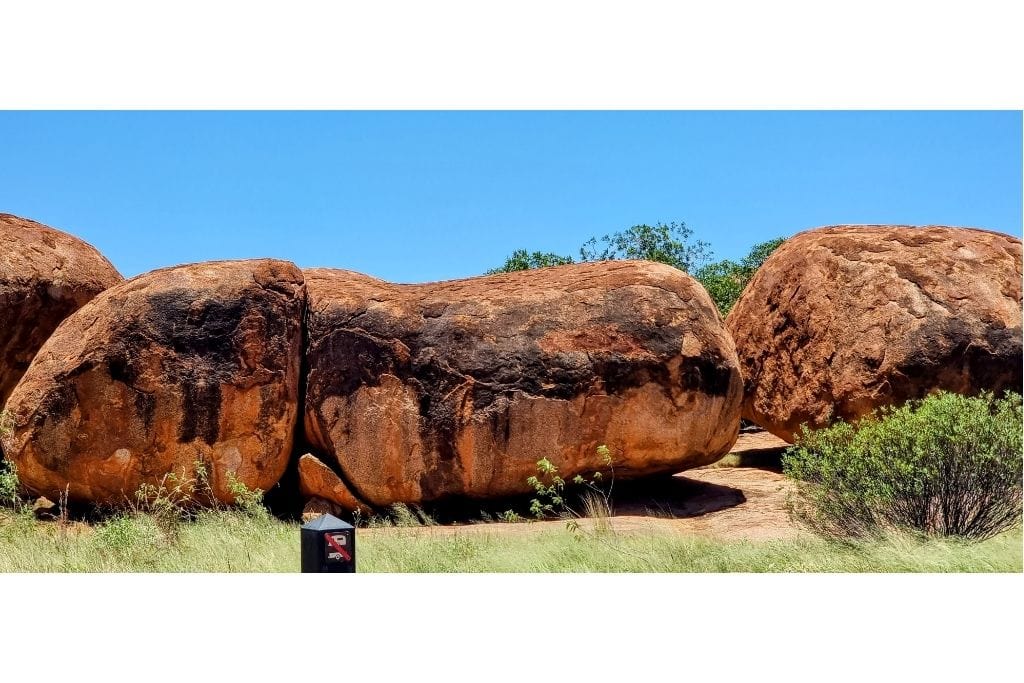
The Warumungu name Karlu Karlu translates to “round boulders,” accurately describing these giant granite formations. The area remains under the custodianship of its traditional owners, who work in partnership with NT Parks to preserve its integrity. Exploring Karlu Karlu is an opportunity not only to witness a natural marvel but also to acknowledge and honor its Indigenous significance.
Geological Features and Formation
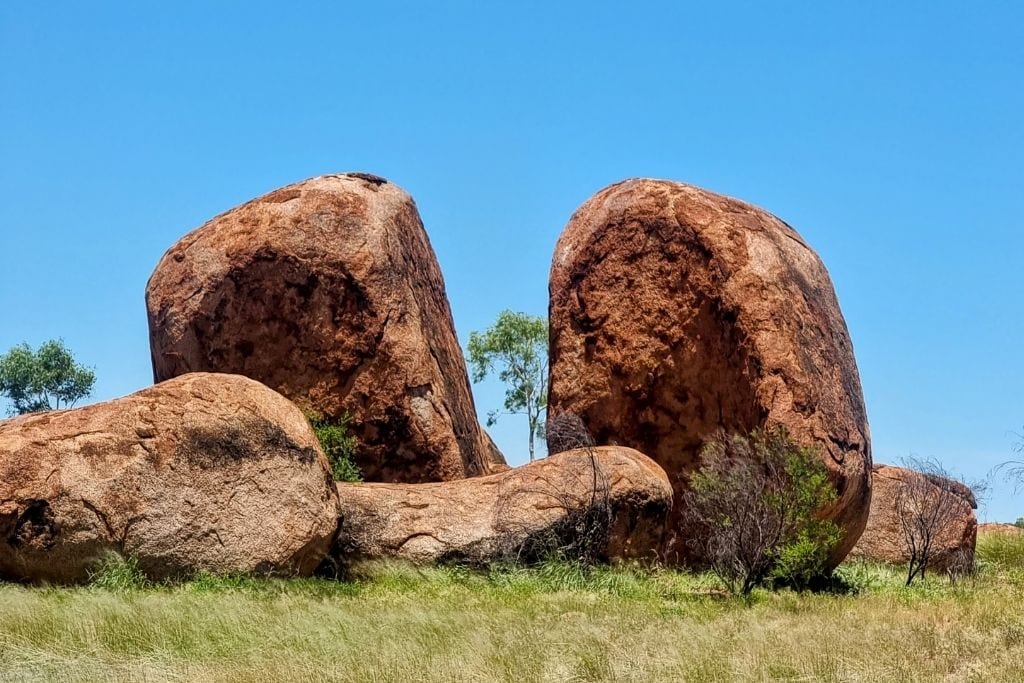
How Was the Devils Marbles Formed?
Over 1.6 billion years, natural weathering and erosion sculpted these striking boulders. Once part of a solid granite mass, water and temperature fluctuations caused cracks, breaking the rock into smaller, rounded formations. The extreme desert conditions of the NT continue to shape the Marbles today, slowly altering their appearance over time.
What Makes Them Unique?
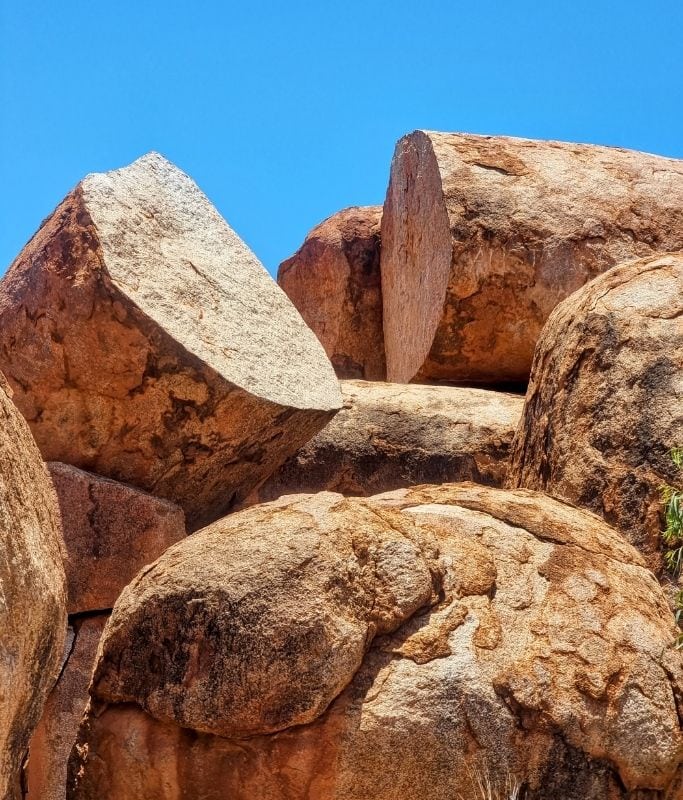
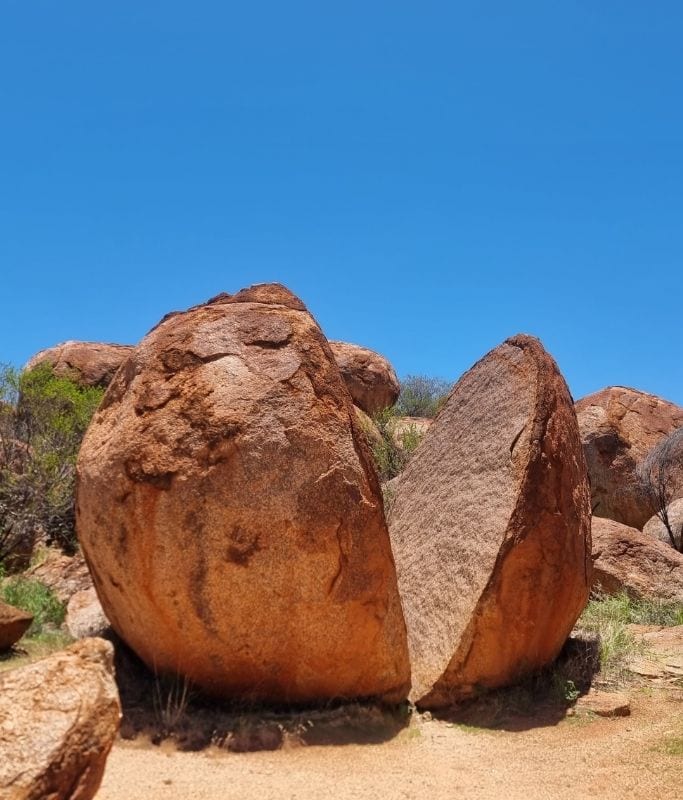
- Size & Scale: Some boulders reach over 6 meters in height.
- Balancing Rocks: These striking rock formations appear precariously stacked, creating one of Australia’s most photogenic natural sites.
- Comparison to Other Sites: The Devils Marbles share similarities with Wave Rock in Hyden (WA) and the Bungle Bungles in the Kimberleys, yet their deep Indigenous connection makes them even more profound.
Visiting the Devils Marbles
How to Get There & Road Trip Planning
The Devils Marbles is located 393 km north of Alice Springs and 100 km south of Tennant Creek, making it a key stop along the Explorer’s Way.
Closest Fuel Stops:
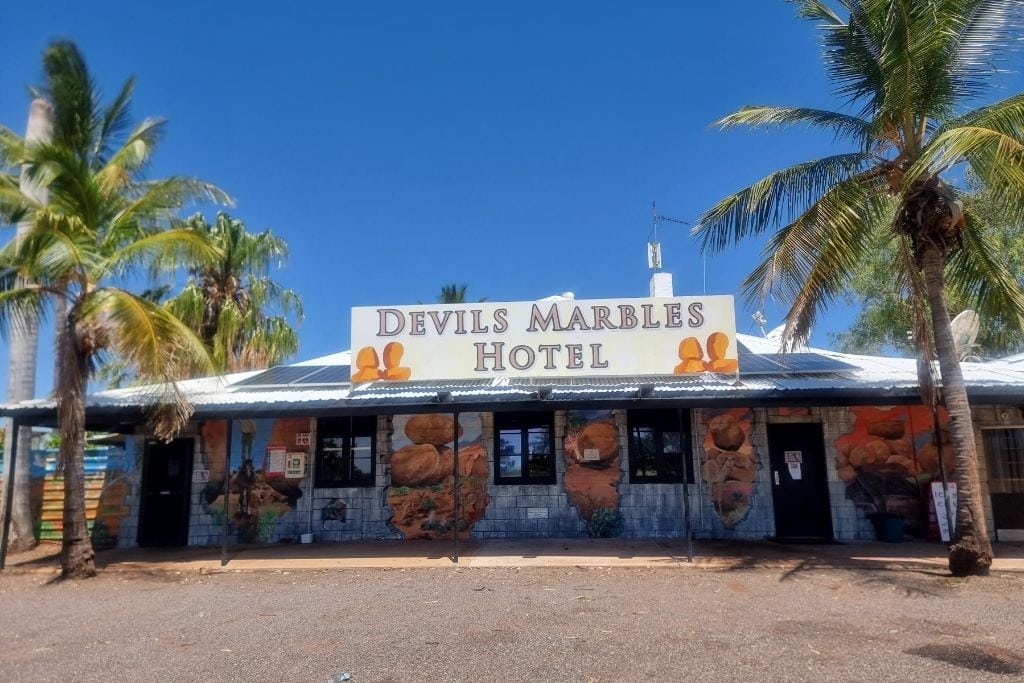
- Devils Marbles Hotel is the closest place for fuel
- Threeways Roadhouse (coming from Darwin)
- Tennant Creek (best for fuel, food, and supplies)
- Ti Tree (for those traveling north from Alice Springs)
Best Times to Visit
LOCATION to the DEVILS MARBLES
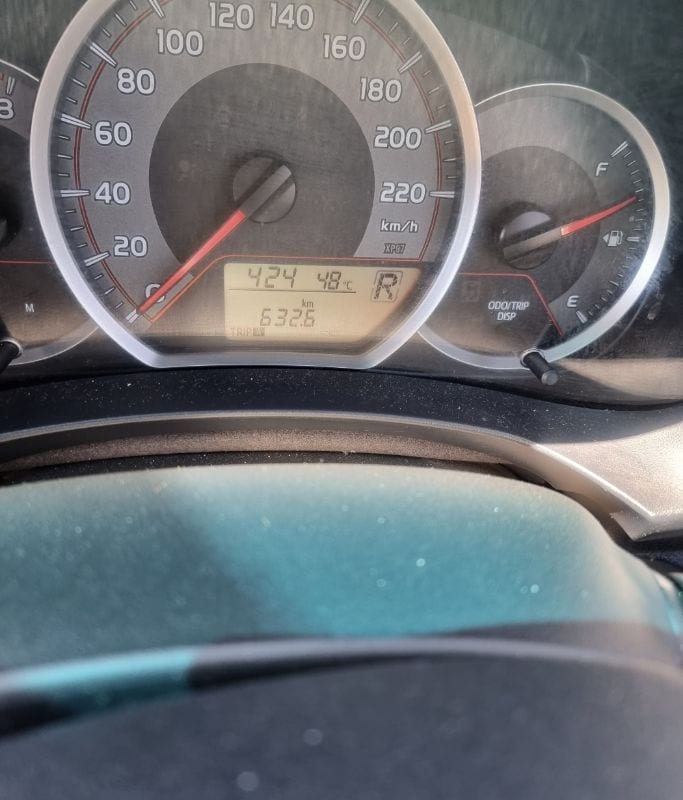
Sunrise & Sunset: The golden hour creates stunning photo opportunities.
- May – September: Cooler months provide the most comfortable conditions.
Avoid December – February: Intense summer heat often exceeds 40°C. I went there in December and it was very hot 48 degrees Celsius (118 Fahrenheit). So upshot is avoid summer months if you can.
What to Do at the Devils Marbles
Walking Trails and Exploration
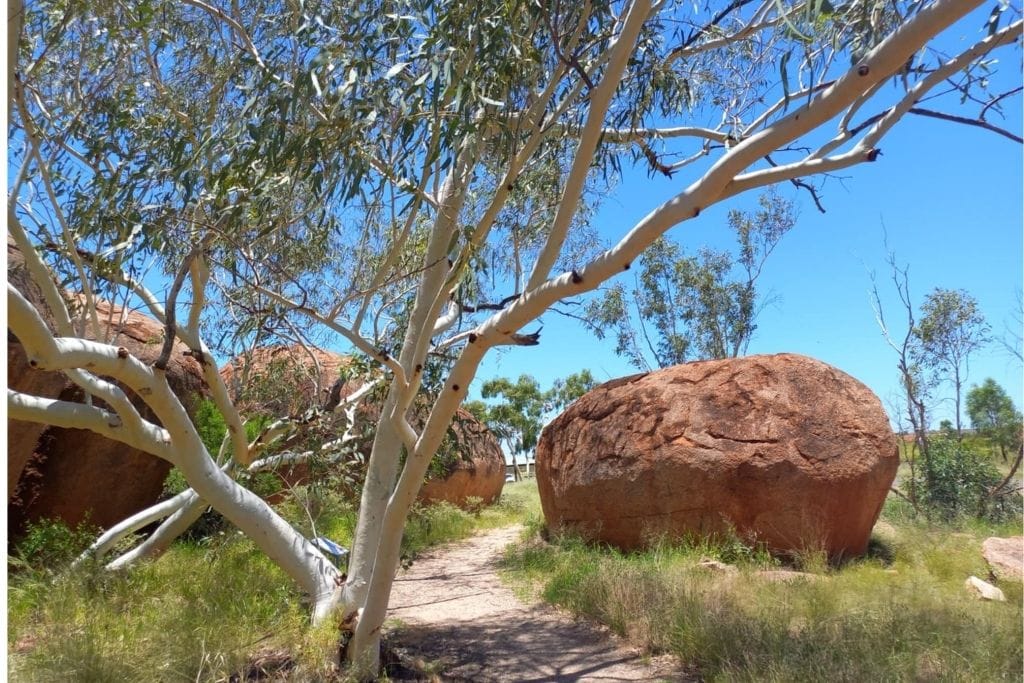
- Marked trails provide safe and respectful exploration. There are several tracks ranging from 350m to 4kms.
- Stay on designated paths to protect the delicate environment.
- A mix of short walks and scenic viewpoints allows for easy exploration.
Photography & Cultural Considerations
- Sunrise & sunset offer breathtaking views.
- Some boulders cannot be photographed due to their sacred nature.
- Drone use is restricted; check local regulations before flying.
Accommodation & Camping
Camping & Nearby Options
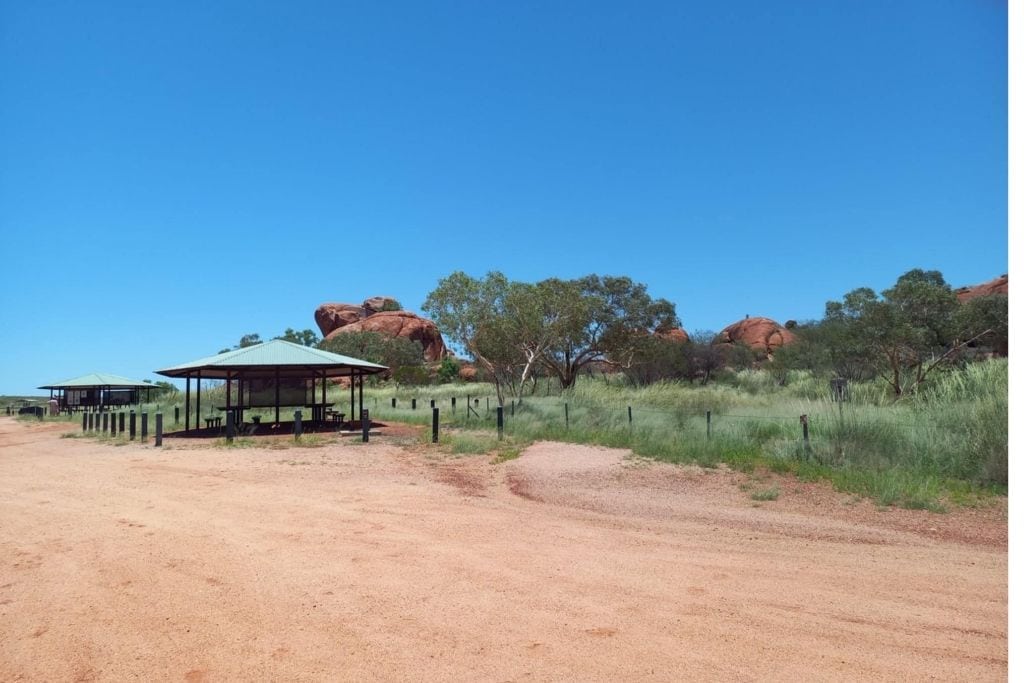
Devils Marbles Campground: Basic NT Parks site (small fee, limited facilities) with a view of the Devils Marbles.
Devils Marbles Hotel is the closest accommodation to the Devils Marbles. They have rooms, caravan sites, camping, bar, award winning food, and fuel. I had the award winning pie. Yummy! Plus they have a pool.
- Tennant Creek: Hotels, motels, and caravan parks. Tennant Creek travel guide.
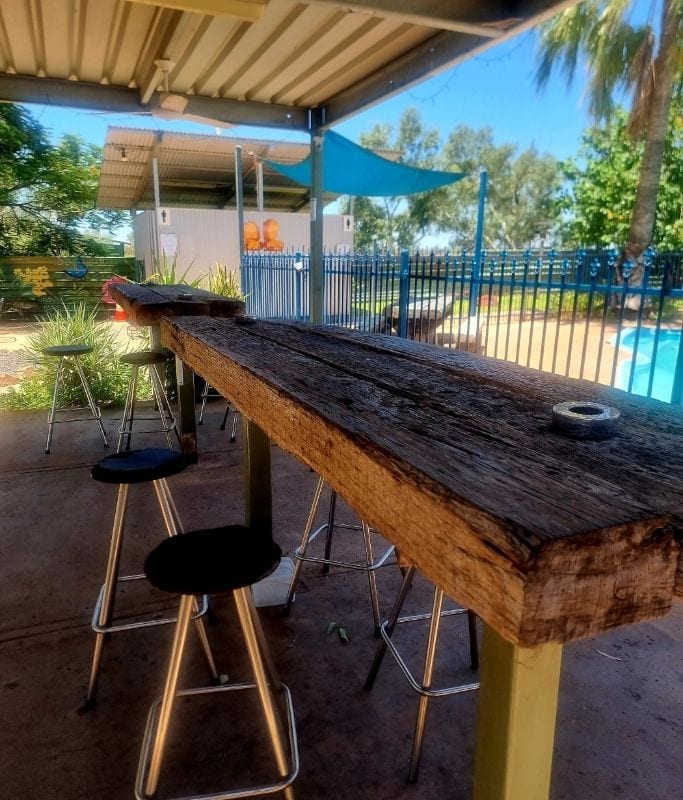
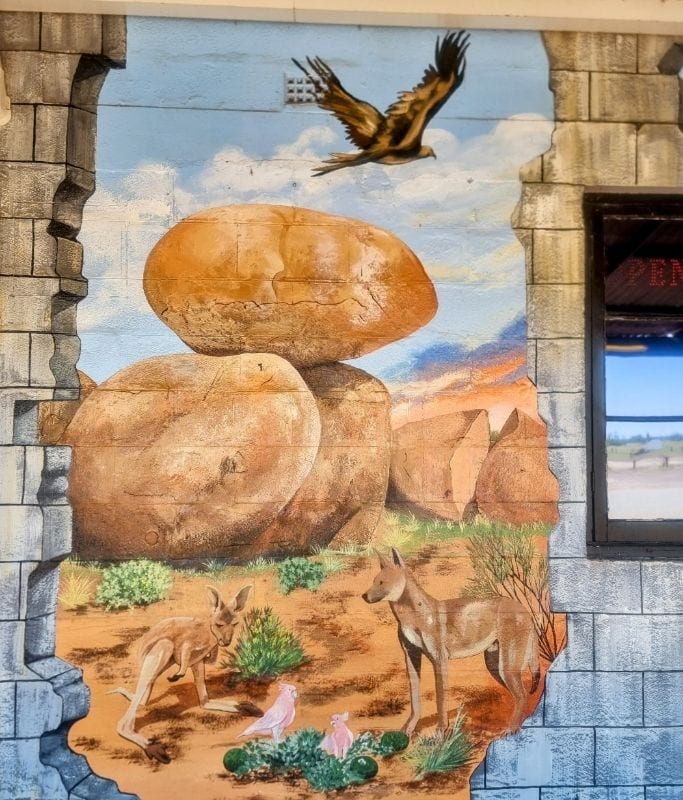
Conservation & Responsible Travel
Protecting Karlu Karlu
- Jointly managed by Traditional Owners & NT Parks.
- Damage from off-trail exploration can degrade the site.
Visitor Responsibilities
- Respect cultural restrictions (no photography of sacred boulders). There are sign posts to inform you.
- Follow Leave No Trace principles.
- Support local businesses along the way to give back.
FAQs – Everything You Need to Know
How many Devils Marbles are there?
Over 100 large granite boulders scattered across the reserve.
How was the Devils Marbles formed?
Erosion and weathering over 1.6 billion years.
Can you camp at the Devils Marbles?
Yes, at the basic NT Parks campground nearby.
How far is Devils Marbles from Alice Springs?
393 km (about a 4-hour drive).
How far is Devils Marbles from Darwin?
970 km (around a 10-hour drive).
What is special about the Devils Marbles?
Their unique geology, Aboriginal significance, and photogenic landscapes.
What was discovered at the Devils Marbles?
Ancient Indigenous cultural sites and Dreamtime stories.
How old are the Devils Marbles?
Over 1.6 billion years old.
Do you need a 4WD to visit Devils Marbles?
No, but a 4WD is recommended for nearby attractions like the Davenport Range.
How much does it cost to visit the Devils Marbles?
Entry is free, with a small camping fee.
Final Thoughts: Why the Devils Marbles Should Be on Your Bucket List
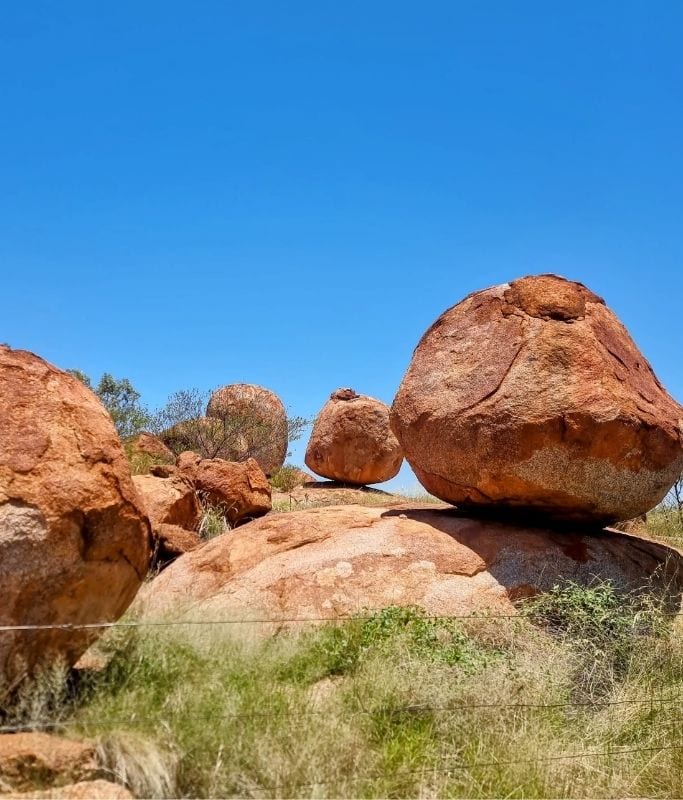
Whether you’re road-tripping the NT, exploring the Explorer’s Way, or fascinated by Indigenous culture and geology, Karlu Karlu is an unmissable stop. Its cultural significance, stunning landscape, and easy accessibility make it a perfect addition to any Northern Territory adventure.
For more Outback travel tips, check out my Outback Australia Road Trip Guide and for further NT adventures check out Larrimah: The WW2 Strategic Hub Lost to History and Relax and Unwind in the Northern Territory Hot Springs
